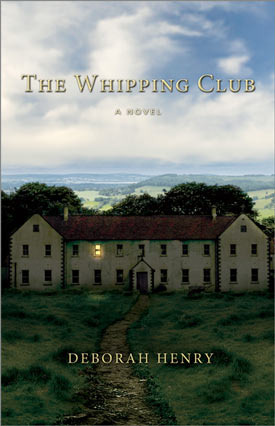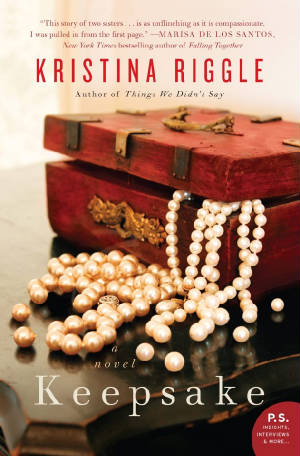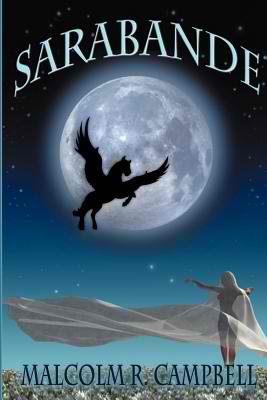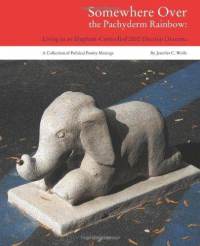|

The
Whipping Club by Deborah Henry
Book
Review by Zinta Aistars
Hardcover: 312 pages
Publisher: T. S. Poetry
Press (February 10, 2012)
Price: $32.00
ISBN-10: 0984553185
ISBN-13: 978-0984553181
Author Deborah Henry has
said about the writing of her debut novel: “I wrote The Whipping Club because
what I found hidden, I needed to uncover.”
An understatement, no
doubt, as first novels of this scope aren’t written by merely turning over a rock. That had to be at very least a sizeable
boulder, and the courage to write it equally so. The Whipping Club is a story about
Marian McKeever, a teacher and a Catholic, and the man with whom she falls in love, a journalist and Jewish, in Dublin, Ireland,
of 1957. It is about the child she carried at the time of their engagement, but felt she couldn’t keep. It is the story
of an unforgiving society that would rather look the other way than to face its troubles, about churches corrupted by power,
about the dark secrets of orphanages and homes for unwed mothers, and the abuse so prevalent in these institutions.
With that premise comes
a great deal of suffering, and for no one more than the abandoned child. In 1957 Ireland, to marry out of one’s faith
was unacceptable enough, but to carry a child as a young, still unwed mother was beyond forgiveness. The young Marian made
the heart-wrenching decision (or perhaps, more accurately, was forced into this decision by the norms of that time) to give
birth to her child, but then give it up to what she hoped would be a better life than the one she could offer. She entered
a home for unwed mothers, keeping her secret even from her fiancé. After all, his family was already up in arms about their
inter-faith marriage.
Based on extensive research,
including a trip to Ireland, Henry delves deep into the horrors behind closed doors of power and privilege. Henry is herself
Irish-American and born of inter-faith parents, Jewish and Catholic. A seed for a novel may be born there, but Henry has created
a story from that seed that touches all hearts that can still be touched, and shakes up even those who would rather be unshaken
and remain asleep—The Whipping Club whips up emotion that is difficult and
painful. Few things can be more painful than the loss of a child, let alone facing up to the abuse of that child.
The home for unwed mothers
is a cruel place of forced penance on pregnant girls, no matter the circumstances of their condition. The girls are sent out
to “mow” the lawn by pulling up sheaves of grass with their hands. They are taunted and punished and humiliated
without and beyond reason, yet their suffering is shadowed by what happens to many of their children. Rather than being adopted
by families, many of the children are placed instead in orphanages where sexual abuse is rampant, beatings are an everyday
occurrence, and ever thicker and darker lies are told to maintain cover. Children die, and no one flinches.
When Marian and Ben come
full circle to confront the reality of the child left behind, by then having a 10-year old daughter, any fantasies Marian
may have held as comfort that her child was better off are shattered. Her unwavering search for her son is perhaps not nearly
as mesmerizing as her struggles to connect with him once she finds him. A great many doors come bursting open, and a great
many shadows are drawn into near-blinding light.
If ever the story becomes
almost too heavy to bear, it is lightened again by the characters that do the right thing, overcoming fear and threats and
societal pressure. Throwing lifelines to the reader are the resilience and will to survive of the children. Children are a
powerful force, and in spite of the sins of the adults, enough of them survive to give a corrupt society hope for a more tolerant
and compassionate future. Classic moments of reunited mother and child, even if only momentarily, brighten the storyline enough
to keep the suffering from becoming overpowering—yet just weighty enough to stay with the reader long after the book
is done.
“Adrian. The child she had never forgotten stood there, in between
Father Brennan and Nurse, and to Father Brennan’s left, the short and strapping Sister Agnes, but they could all disappear
into thin air. Except for him. The yearning had never diminished. All these years, all she had ever wanted was to see him
again in the flesh, and dreamed that he would be returned to her and their home where he could be safe and happy.
“Marian crouched down so that she could gaze into his eyes. She desperately wanted him to feel her love for
him. She wanted him to know that she was sorry, wanted to tell him that she hoped they could make up for lost time. All
this time. Still, she could have never found him. How many times had she secretly daydreamed
about him since he was ripped from her life? How her da would have wanted him, too! She must remain calm in front of the fat
Sister. He was a big boy, a beautiful boy. He had the map of a McKeever on his face. She reached toward him and brought him
into her arms. She felt her body shaking, the heat of shame scouring her.”
Deborah Henry’s first
short story was published by The Copperfield Review, was a historical fiction finalist
for Solander Magazine of The Historical Novel Society and was long-listed in the
2009/10 Fish Short Story Prize. The Whipping Club is her first novel and was chosed
for Oprah’s Summer 2012 reading list. She lives in Fairfield, Connecticut, with her husband and their three children. She is currently
at work on her next book. Visit her at deborahhenryauthor.com. Henry’s work has also been published in The Smoking Poet, where an author interview will be featured in the Fall 2012 issue.

Keepsake by Kristina Riggle
Book Review by Zinta Aistars
·
Paperback: 384 pages
·
Publisher: William Morrow Paperbacks (June 26, 2012)
·
Price:
$14.99
·
ISBN-10: 0062003070
·
ISBN-13: 978-0062003072
A mother’s fear: a knock on
the door from family protective services talking about taking away your child. What good mother wouldn’t turn somersaults
to keep her child home and her family intact? Any good mother would—but in Kristina Riggle’s novel, Keepsake,
doing just that is especially demanding. The reason that social worker is standing at the door ties directly into her addiction—hoarding.
Hoarding is the inability to throw anything out, to the point of filling one’s living space with items until there is
no room to live within that space.
Trish really is a good mother. It’s
a pleasure to read about her interactions with her little boy, Jack, contrasting against the twinge of reading about her disorder.
Addicts can still love, but it’s their behavior that is out of control. Riggle does a wonderful job of
showing the reader that an addiction does not define a person. It’s a symptom of something buried deep inside that the
person has not yet confronted and resolved.
Adding another interesting element
of contrast to this story about hoarding and families is another member of the family, Trish’s sister Mary. The two
women are actually the daughters of a hoarder, but while one has followed in the cluttered steps of her mother, the other
has veered to the other extreme. If not quite an obsessive compulsive disorder, Mary is a neat freak who can’t seem
to stop cleaning, wiping, vacuuming, ordering everything in her spotless home.
Riggle’s novel handles these
elements without any clutter on the author’s part. The story cleanly moves toward a suspenseful ending: will this family
be torn apart or brought together by the damage done by hoarding? Ex-husbands return, therapists sneak in disguised as friends
who somehow manage to add elements of romance, and family history is unearthed to reveal deep secrets held over generations.
Keepsake is a fascinating
read about a growing affliction in modern American society, giving readers insight into how intelligent, competent people
can fall into behavior patterns with the potential to ruin lives, break apart families and endanger not only themselves but
those that are close to them. It also brings up the question of why we are seeing more hoarding in our society. Insight into
this phenomenon of living in clutter, unable to throw out anything, let go of any object in one’s home, can only help
us take a hard look at ourselves and how we live.
Kristina
Riggle is a novelist and freelance writer living in Grand Rapids, Michigan.

Sarabande
by Malcolm R. Campbell
Book
Review by Zinta Aistars
· Paperback: 238 pages
· Publisher: Vanilla Heart Publishing, 2011
· Price: $13.95
· ISBN-10: 1937227758
· ISBN-13: 978-1937227753
Matter of taste, and mine has never led me, not easily, to
fantasy or science fiction reading—yet Malcolm R. Campbell, with his fantasy novel Sarabande,
easily pulled me in. The main character, our mythic heroine, is Sarabande, and she appeals in every way to the female reader.
She is street smart at the same time that she is savvy, and even as she enters a world unknown to her, she is sharp and strong
enough to find her way through challenge after challenge, disaster after nightmare.
Sarabande’s quest is to find her own peace—she
has been haunted by her dead sister for years. Her quest takes her into the past to settle the unsettled with her sister Dryad,
an anti-heroine, or to take her sister’s place in the grave. She travels through Montana and Illinois and across time
to accomplish her mission, but encounters a nightmare along the way in the shape of a man, Danny Jenks, a brutal truck driver
without conscience.
Campbell describes a rape scene that is difficult to read,
yet at the same time, earns my respect with his skill in describing this scene, and its aftermath on the woman. Indeed, I
had to keep reminding myself I was reading the writing of a male author. It is rare to find this ability in an author to cross
genders even in everyday basics such as conversation, mannerisms. To do so in describing the effect of rape on a woman’s
body and psyche is nothing short of amazing. Campbell nails it: her anger, her pain, her humiliation, her ferocity that eventually
takes her from victim to survivor to avenger.
Blending the fantasy world near seamlessly with reality, Campbell
takes the reader from one world into the other and back again with such ease that the reader can easily enter the world of
suspended disbelief required to read fantasy. Flying horses vanish and reappear. The dead rise from their graves. Magical
beings intermingle with humans. And, not least magical, Campbell avoids cliché deftly, finding new ways to express scenes
that could easily fall into the former category:
“Sarabande pushed the hood back and let the wind seize
her hair and jumble it with the stuff of clouds.”
See? Dipping one toe into an image that could make one wince,
he manages to dance away with fresh expression. It works.
Sarabande is a satisfying read. We are given a heroine we
can understand and with whom we can sympathize. We travel alongside her through conflict and challenge, cheering her on. She
suffers and endures, and finally rises above. How she does this … you’ll have to read for yourself.
Malcolm R. Campbell is the author of two other fantasies,
The Sun Singer (who returns in this novel) and Garden of Heaven: An Odyssey, also a comedy satire called Jock Stewart and
the Missing Sea of Fire. He lives in Georgia.

Somewhere Over the Pachyderm Rainbow: Living in an Elephant-Controlled 2010 Election Diorama
A Collection of Political Poetry Musings by Jennifer C. Wolfe
Book
Review by Zinta Aistars
·
Paperback: 115 pages
·
Publisher: BlazeVOX books, 2011
·
Price: $16.00
·
ISBN-10: 1609640578
·
ISBN-13: 978-1609640576
Another election looms, and while this collection
of political poetry musings by Jennifer C. Wolfe is dated for the 2010 elections, little has changed; they apply just as well
today, if only with a few updated news headlines.
If you are a conservative in political leaning,
duck. Wolfe doesn’t hold back, doesn’t mince words, isn’t shy about going for the Republican jugular. Her
poetic musings take on not only the election that handed control of the U.S. House of Representatives to the Republican Party,
but addresses many of the headline events of the past few years—the Arizona shooting of Congresswoman Gifford, the 9/11
responders’ battle to receive ground zero health care reimbursement, Sarah Palin’s hold on God’s ear, Rush
Limbaugh’s tantrums over the airwaves, George W. Bush from every sorry angle, the election of America’s first
African American president, and more. Much more. No elephant dropping is left
unturned, and Wolfe comes in blazing, and turning, and blazing some more.
Ah, vitriol—the new Geritol.
Swallow two pills and bash your opponent’s head in, in the morning.
To be fair, bashing happens on both sides, and Wolfe
bashes away with gusto herself. And that’s where I give her high marks. How refreshing! How rejuvenating to hear someone
care so deeply, so hotly, about current events and all that goes on in our body politic. Apathy has been too long a national
cancer, and if one thinks it doesn’t matter—vote or don’t vote, pay attention or don’t, follow current
events or change the channel—oh, it does. We are where we are precisely because too many of us have had our blinders
on and couldn’t be bothered.
If you lean right, even a little, this collection
will rile you—and that’s good. Will it inspire you to toss out a bit of vitriol yourself? Good. The important
thing is to care enough to blink an eye, because that’s when change really begins to happen. If government isn’t
what it should be, look in the mirror. We the people, you know?
What earns my respect most is passion, and Wolfe
brims with it. I’m not sure I would use the word “poetic” to describe this collection; I see little of poetry
here. The closest we get to poetry is the occasional beat of a steady rhythm in line pairings. I would cross that word out
of the title and leave in, simply, musings, because that is what these are, and Wolfe muses loud and clear. Vitriol alone,
however, while crucial to get the fire burning, won’t be enough. Caring must inspire action, and there are plenty of
ways to create change, become involved, do the work, build the dream you want to see. If this collection moves any reader
to that, I thunder applause.
Jennifer C. Wolfe grew
up in Maplewood, Minnesota, and studied fiction writing and poetry at Century College in White Bear Lake. Wolfe has been published
in the Century College (White Bear Lake, MN) Spring 2008 Student
Lounge literary magazine; Scrambler Magazine; and has had three e-books
published by BlazeVOX: Kick the Stones: Everyday Hegemony, Empire,
and Disillusionment; Yukon Rumination: Great
Fun for All in the Land of Sarah Palin's Joe Sixpack Alaska; and Healing Optimism, and Polarization. Somewhere Over the Pachyderm
Rainbow is Wolfe's first print published book.
|

